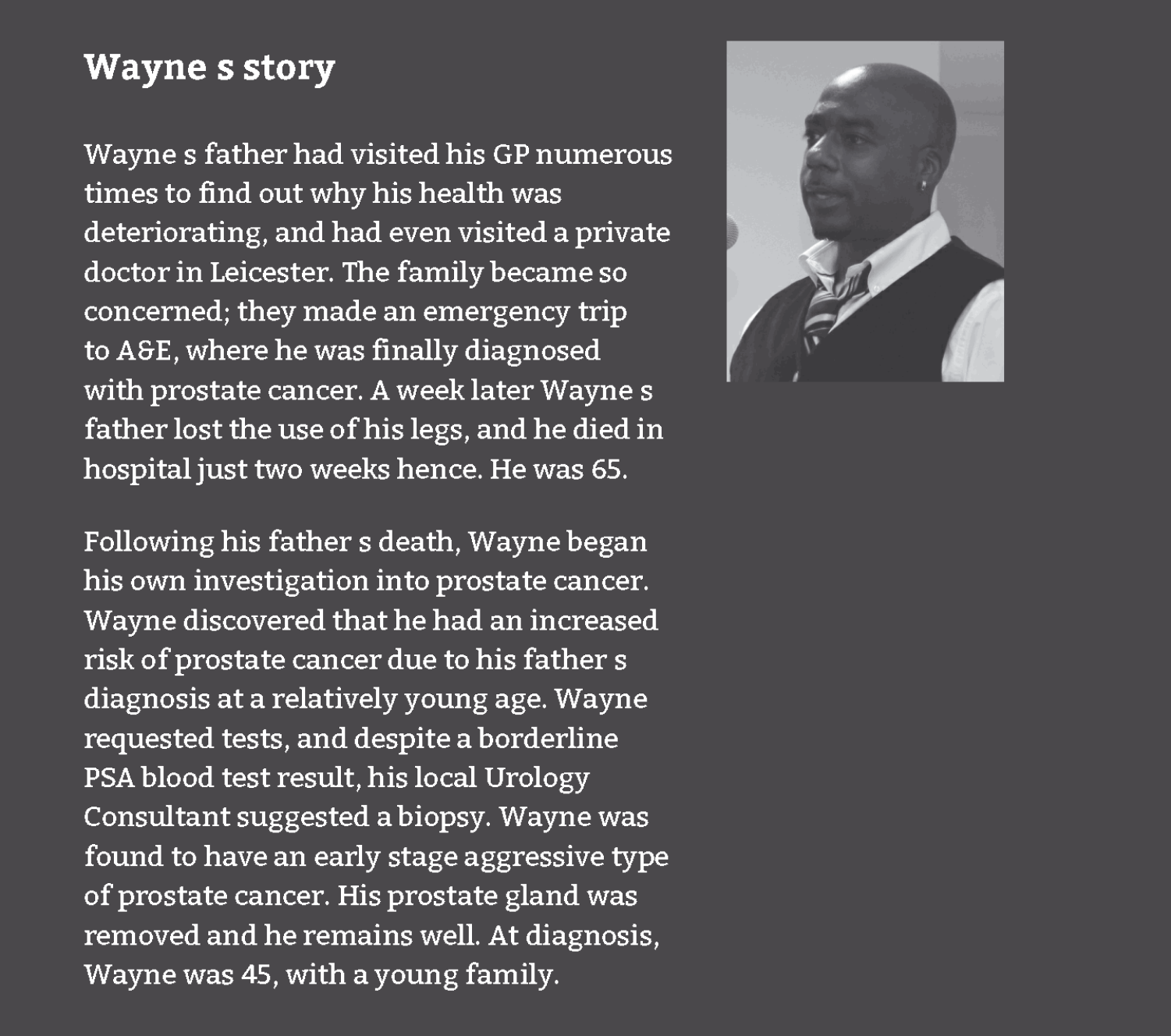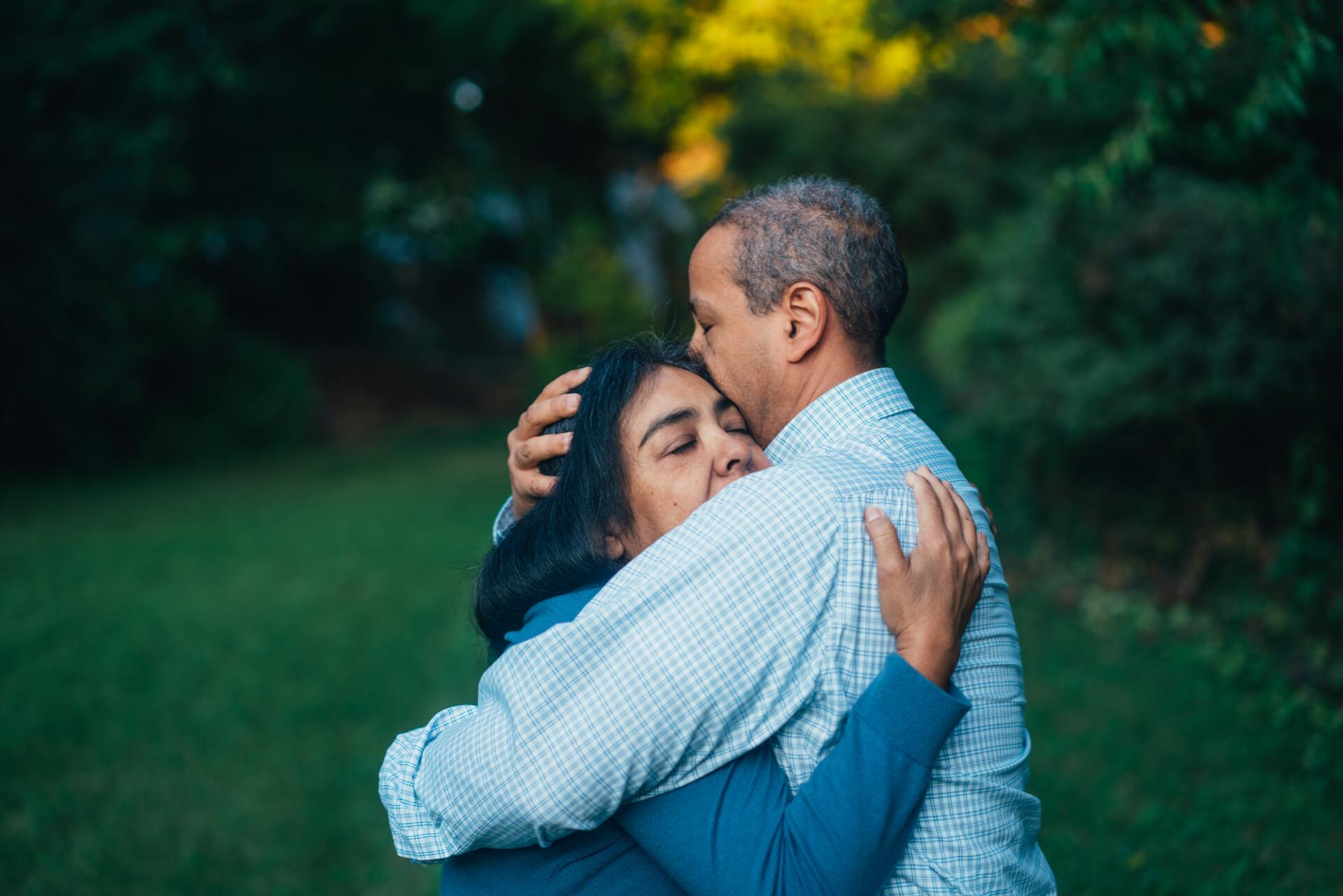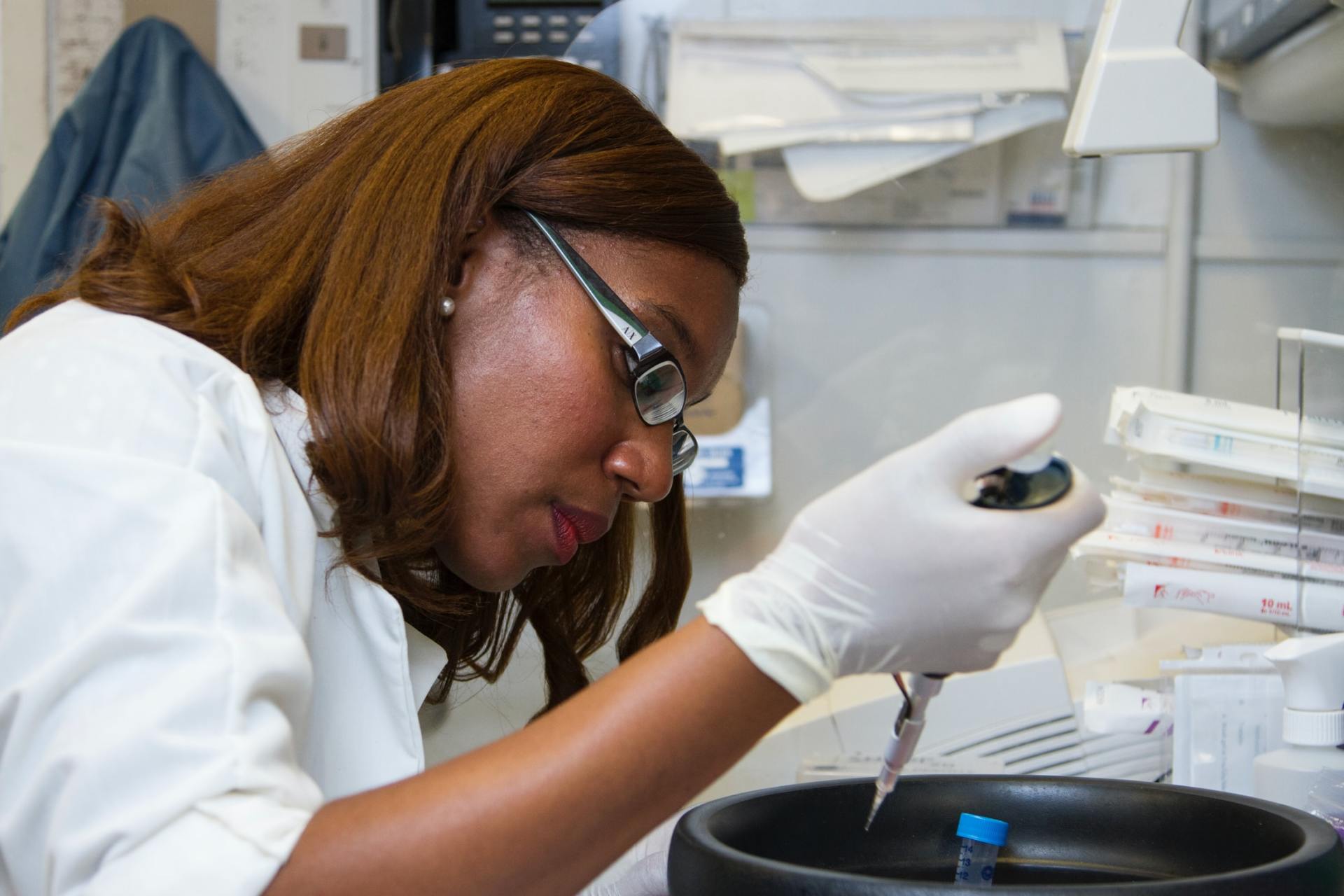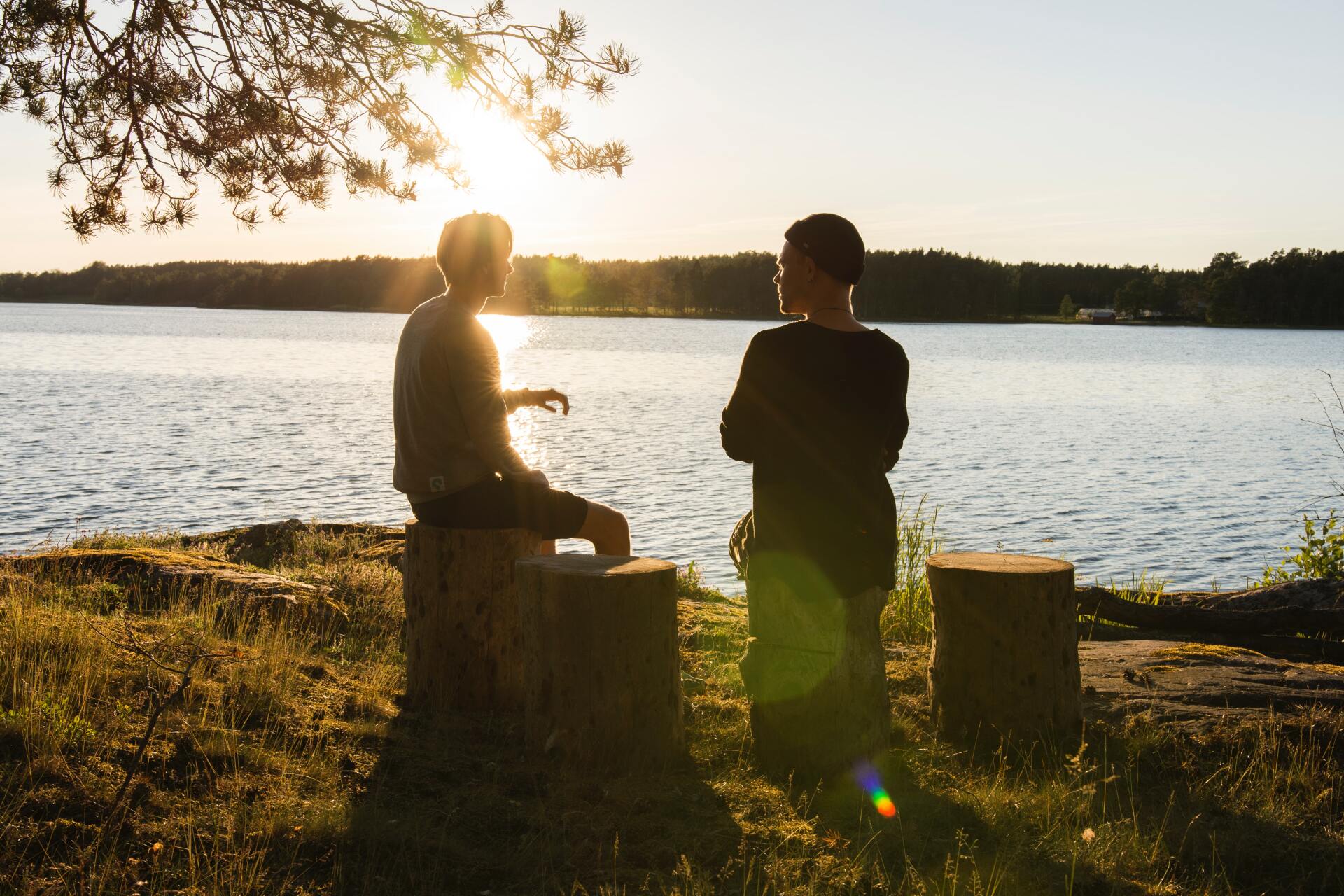Overcoming Inequalities in Prostate Cancer: the Role of Clinical Trials and Meditation.
(10 minute read)
Summary:
What can black men do to improve their health and wellbeing, and why are there racial differences in prostate cancer rates? Here, we look at the role of clinical trials and yoga for cancer in reducing these inequalities, and find out how to get more #menonthemat!
Prostate cancer is the most commonly diagnosed cancer in the UK. In the UK, over 11,500 men, trans women, and nonbinary people die from prostate cancer every year, and 1 in 8 will be diagnosed with the disease in their lifetime.
However, this likelihood isn’t the same for everyone. In fact, black men in the UK are
2-3 times more likely than white men to develop the disease, with
Prostate Cancer UK calculating that
1 in 4 black men in the UK will get prostate cancer. What’s more, according to the latest available figures published by the
National Cancer Intelligence Network,
30% more black men than white men in the UK die from prostate cancer every year. As the same report notes, increased risk cannot entirely account for this inequality. These figures are especially harrowing when coupled with the serious inequalities that black and Asian people, as well as people from mixed ethnic backgrounds,
face throughout the cancer experience.
In this post, we aim to answer two questions:
Why are black men at greater risk of prostate cancer?
What can be done to improve outcomes, given these risks?
Biology
There is some evidence that black individuals with African ancestry have a higher genetic risk than their white counterparts for developing prostate cancer. Further, some research suggests that 5-alpha reductase (which is believed to be a key component in the development of prostate cancer), is more active in black men than in white men. This may account for why young black men are far more likely than young white men to be diagnosed with the disease.
Access to Healthcare
In the UK, our healthcare system is free at the point of access, and studies have shown that there are no differences between white and black men’s ability to access their GP. So, what’s going on?
A big issue is the persistent myth in healthcare that prostate cancer is something that only affects older men. Although the median age of diagnosis is 68, black men are far more likely to develop the disease at a younger age than men who are white. Because of this, all black men over the age of 45 are entitled to receive a blood test for Prostate Specific Antigen (PSA) – all they need to do is ask their GP.
Unfortunately, despite this guideline, some men are refused this life-saving test due to a ‘lack of symptoms’, and others are not given follow-up tests despite having elevated levels of PSA. If you meet the criteria for this test, you must insist that you be given it. If your GP continues to refuse, ask for the refusal to be formally documented in your medical records. If you are given a test, make sure you ask your doctor what your PSA levels are. If they are even slightly above baseline levels, request a follow-up. For more self-advocacy tips, click here.
Awareness
As the report ‘Hear Me Now. The uncomfortable reality of prostate cancer in black African-Caribbean men’ by BME Cancer illustrates, despite black men’s increased risk of developing and dying from the disease, they are between 5% and 7% less aware than white men of how common prostate cancer is.
Image from: 'Hear Me Now. The uncomfortable reality of prostate cancer in black African-Caribbean men'
Reducing inequalities
There is much work to be done at the institutional level to raise awareness about prostate cancer amongst the entire male population, and to ensure that men are referred for testing the first time they visit their GP with concerns about the disease. However, there are things that men – especially black men – can do to improve their chances and reduce the suffering that accompanies a cancer diagnosis:
Raising awareness
Talk to each other. Share articles like this on social media, text a friend, bring it up when you’re on the phone to your loved ones... whatever you do, let the men in your life know:
- How common prostate cancer is
- That early-stage prostate cancer doesn’t usually cause symptoms
- That you have a higher risk developing of prostate cancer if you are black
- The symptoms of prostate cancer, which include any changes in urination or sexual function.
Treatment
Prostate cancer can be treated in a number of ways, and the good news is that with early detection, diagnosis, and treatment, most men go on to live for many years after diagnosis. In fact, in the UK, prostate cancer survival has tripled in the last 40 years!
However, there are some ethnicity-related differences here, too. Studies show that although there are no differences in the numbers of white, black or Asian men who undergo radiation therapy, significantly fewer black men than white men have surgical or hormonal treatment.
This is especially concerning when considered alongside research from the US which shows that in men with metastatic prostate cancer are treated with newer hormonal therapies, African-American men live 20% longer than those who are white!
Clinical trials like this are vital for optimising the treatment of high-risk populations such as black men. However, matching a patient to a study has historically been a lengthy process. When coupled with the increasing demand placed on the NHS, the result is that a small minority of patients will ever hear about clinical trials from their doctors. Further, people from ‘minority groups’ are consistently under-represented in clinical trials, which means that breakthroughs like the one above aren’t happening at the rate they should be.
This is where tools like Ancora.ai come in. All you need to do is visit the website (which is free), enter your condition and location, and you can easily find relevant clinical trials happening near you. If you are black, Asian, or from a mixed ethnic background, and you choose to take part in one, you will be actively contributing to the diversification of medical research. By doing this, you will be helping to ensure that medications and treatments developed in the future will be safer for everyone.
What else can black men do to reduce the impact of prostate cancer?
Like all cancers, prostate cancer has emotional, physical, and mental effects that can extend far beyond the treatment window. It is common for the people it affects to feel scared, angry, frustrated, and as if their sense of self has been changed or taken from them. The treatment can cause mood swings and a loss of energy, and can result in physical changes such as a reduction in strength and an increase in weight.
At Natia, we are dedicated to reducing this suffering in everyone affected by cancer, through our app, NatiaCares. We deliver interventions such as yoga and meditation, which are clinically proven to improve the ‘side-effects’ of cancer.
However, although these tools can help everyone, not everyone uses them. Recent studies from the US show that almost 90% of people who practice yoga are both female and white, and the same can be said of the vast majority of people who engage in meditation. Why is this, and what can be done about it?
We asked Mario Austin, yoga teacher and founder of MARIOM Yoga, for some reasons behind this lack of diversity in wellness, and some ways in which men can start to benefit from yoga and meditation. Click here to see what he had to say!
This post is the first half of the NatiaCares and
Ancora.ai Movember collaboration, a project aimed at providing insight into the racial inequalities in both prostate cancer and its management. Movember is all about men’s health, and at Natia and Ancora, we are dedicated to helping men make the most of the health and wellbeing opportunities available to them.





